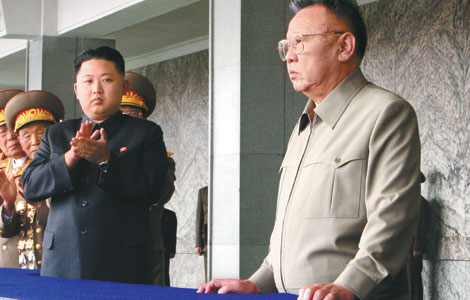|
|||||||||||
MOSCOW - Russia, the only G20 member and the biggest economy outside the World Trade Organization (WTO), finally joined the trade bloc on Friday after 18 years of negotiations.
Local analysts believed Russia's accession to the WTO would boost the country's economic and trade ties with its biggest trade partner - China, as the two countries would trade with each other under the same rules of the WTO.
Same rules
Trade between Russia and China, two giant neighbors, has recovered from the global financial crisis and rebounded to a pre-crisis level in 2011. Bilateral trade volume in the first half of this year stood at $35.9 billion, a 39.6-percent hike compared with last year.
Upon the completion of Russia's negotiations on its WTO bid in November, Russia's chief WTO negotiator Maxim Medvedkov, who is also the head of the Trade Negotiations Department within the Russian Ministry of Economic Development, told Xinhua that the country's joining of the bloc would expand Russia-China economic and trade cooperation under the same WTO rules.
To enter the WTO, Russia has completely changed the system of technical regulations - to work out and use new and normative technical standards, adopted a new customs code and changed the customs administration system and considerably revised laws on veterinary, phyto-sanitary and other measures, Medvedkov said.
The reforms, according to the official, brought opportunities for both Russia and China to do business with each other under the same rules.
"This is significant. Our exporters and importers will learn these rules because those will be the same for our trade with China and with any other countries," Medvedkov said.
He noted that if enterprises from Russia and China have trade disputes, the two sides could negotiate in accordance with WTO regulations. "This way is profitable for both sides," he said.
After the WTO accession, Russia will have to gradually lower its average tariff ceiling to 7.8 percent from its current 10 percent, with the agricultural tariff down from 13.2 percent to 10.8 percent and the industrial products' tariff slipping from 9.5 percent to 7.3 percent.
Local analysts believed the country would also further restructure its customs system, which would facilitate imports and exports between Russia and China.
Andrei Ostrovsky, deputy director of the Far East Institute of the Russian Academy of Science, echoed Mevedkov, saying that both countries would benefit from Russia's accession to the WTO, as Russian customers would by cheaper Chinese goods and the Russian market would be more accessible for China.
"Russian customers will definitely benefit when Russia and China play according to the same rules, because imported Chinese goods would become substantially cheaper, maybe by up to 5-7 times," Ostrovsky said.
"For China and other economies, Russia's accession to the WTO will be a powerful push, as Russia's vast market becomes more accessible. Moscow has to remove non-economic ways of protectionism like a direct ban on import of certain goods under the pretext of their low quality and so on," he added.
Common lessons
According to Medvedkov, Russia had learned much from China over the past 18 years.
China officially entered the WTO on December 11, 2001 after years of tough negotiations, becoming the 143rd member of the global institution.
"We have came across the same problems China had experienced. We have learned much from our Chinese colleagues, we communicated a lot," Medvedkov said.
He highly valued China's achievements in the decade since it joined the WTO, saying China's accession has led to "its modernization and economic booms" in the country.
"China's accession to the WTO also positively influenced our bilateral trade, we see it is growing and its structure changes. This is largely due to China's membership in the WTO," Medvedkov said.
"I think our membership in the WTO will also promote the development of our relations with China, this is obvious," he said.
Gennady Chufrin, deputy director of the World Economy and International Affairs Institute of the Russian Academy of Science, also noted the accession to the trade bloc is a highly complicated "science" that Russia need to learn.
"Every industry, every sector, every group of goods and services has its own rules under the WTO policy. China has already accumulated rich experience in this practice that Russia could learn from," Chufrin said.
He also noted that Moscow and Beijing have common interests in protecting their markets and boosting their trade within the framework of the BRICS, a club of major emerging countries consists of Brazil, China, India, Russia, and South Africa.
Analysts believed Russia's WTO membership would also facilitate BRICS' coordination and cooperation in the Doha Round negotiations to achieve a balanced result and push forward the reform of the international economic system.
"Russia's accession to the WTO would become a catalyst to the development of cooperation among BRICS members," said Russian Economic Development and Trade Minister Elvira Nabiullina.
Hot Topics
HIV/AIDS, Egypt protest, Thanksgiving, climate change, global economic recovery, home prices, high-speed railways, school bus safety, Libya situation, Weekly photos
Editor's Picks

|

|

|

|

|

|







